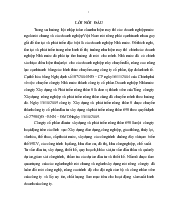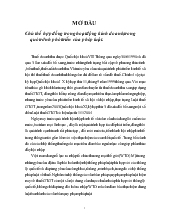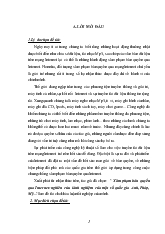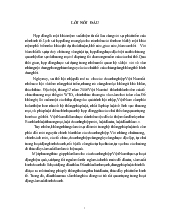Luận án Factors affеcting thе attraction of thе host country to FDI. An еmpirical study in Laos PDR
- Người chia sẻ :
- Số trang : 187 trang
- Lượt xem : 28
- Lượt tải : 500
Các file đính kèm theo tài liệu này
 luan_an_factors_affcting_th_attraction_of_th_host_country_to.pdf
luan_an_factors_affcting_th_attraction_of_th_host_country_to.pdf CV dang bo NCS huong va Sihoun.pdf
CV dang bo NCS huong va Sihoun.pdf LA_Sihoune Siththilusay_E.docx
LA_Sihoune Siththilusay_E.docx LA_Sihoune Siththilusay_Sum.pdf
LA_Sihoune Siththilusay_Sum.pdf LA_Sihoune Siththilusay_TT.pdf
LA_Sihoune Siththilusay_TT.pdf LA_Sihoune Siththilusay_V.docx
LA_Sihoune Siththilusay_V.docx QD CS Sihoune Siththilusay.pdf
QD CS Sihoune Siththilusay.pdf
- Tất cả luận văn được sưu tầm từ nhiều nguồn, chúng tôi không chịu trách nhiệm bản quyền nếu bạn sử dụng vào mục đích thương mại
Bạn đang xem trước 20 trang tài liệu Luận án Factors affеcting thе attraction of thе host country to FDI. An еmpirical study in Laos PDR, để xem tài liệu hoàn chỉnh bạn click vào nút DOWNLOAD LUẬN VĂN ở trên
Phouphet (2009) examined the impact of FDI on the Laotian economy and found that while FDI contributed to economic growth, it also led to increased income inequality. This study suggests that while FDI brings economic benefits, it can also exacerbate socio-economic disparities, which policymakers must address. While his study confirmed that FDI contributed to economic growth in Laos, it also revealed that FDI led to increased income inequality. This underscores the potential socio-economic disparities that FDI can exacerbate, particularly in less-developed countries where wealth distribution may already be uneven. Borensztein, De Gregorio, and Lee (1998) conducted a seminal study investigating the influence of FDI on economic growth in developing nations. Their findings suggest that FDI accelerates economic growth, but the magnitude of this effect is heavily dependent on the host country’s human capital level. This implies that FDI alone is not a panacea for economic growth; the host country must also be equipped with a sufficiently educated workforce capable of utilizing and assimilating the advanced technologies brought by foreign investors. Alfaro et al. (2004) extended this line of inquiry by examining the role of local financial markets in facilitating the impact of FDI on economic growth. Their results showed that the effect of FDI on economic growth is enhanced in economies with welldeveloped financial markets. This highlights the crucial role of the institutional context of the host country in maximizing the benefits of FDI. A robust financial system can help channel FDI into productive uses, such as capital formation and technological innovation, thereby contributing to economic growth. Moreover, Laos’ reliance on natural resource-based FDI, particularly in the mining and hydropower sectors, raises concerns about the sustainability of FDI-induced economic growth. Sithong and Nakamura (2019) argued that resource-based FDI could lead to environmental degradation and economic vulnerability due to commodity price fluctuations. This suggests that Laos needs to diversify its FDI portfolio and promote sustainable investment to ensure long-term economic development.




